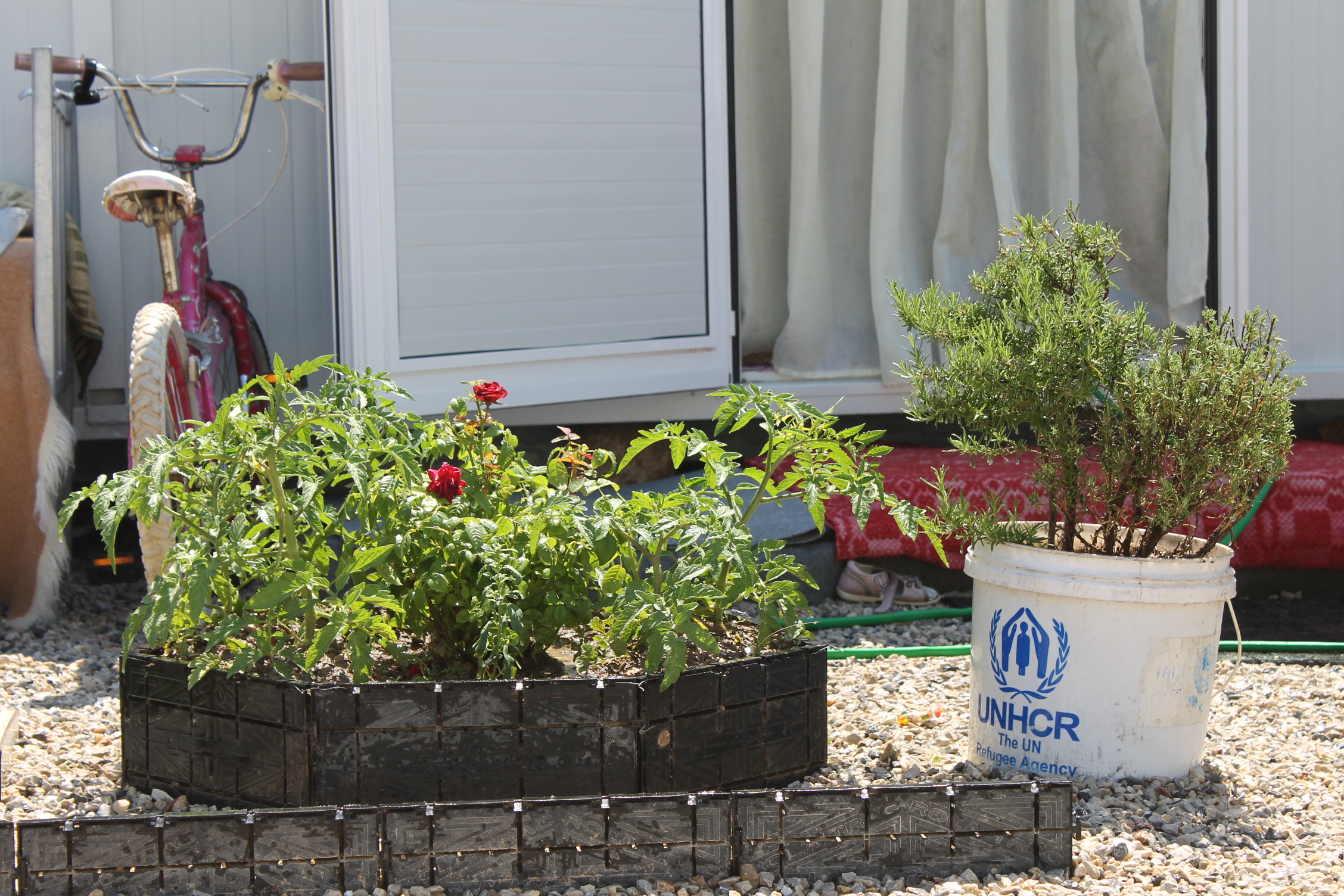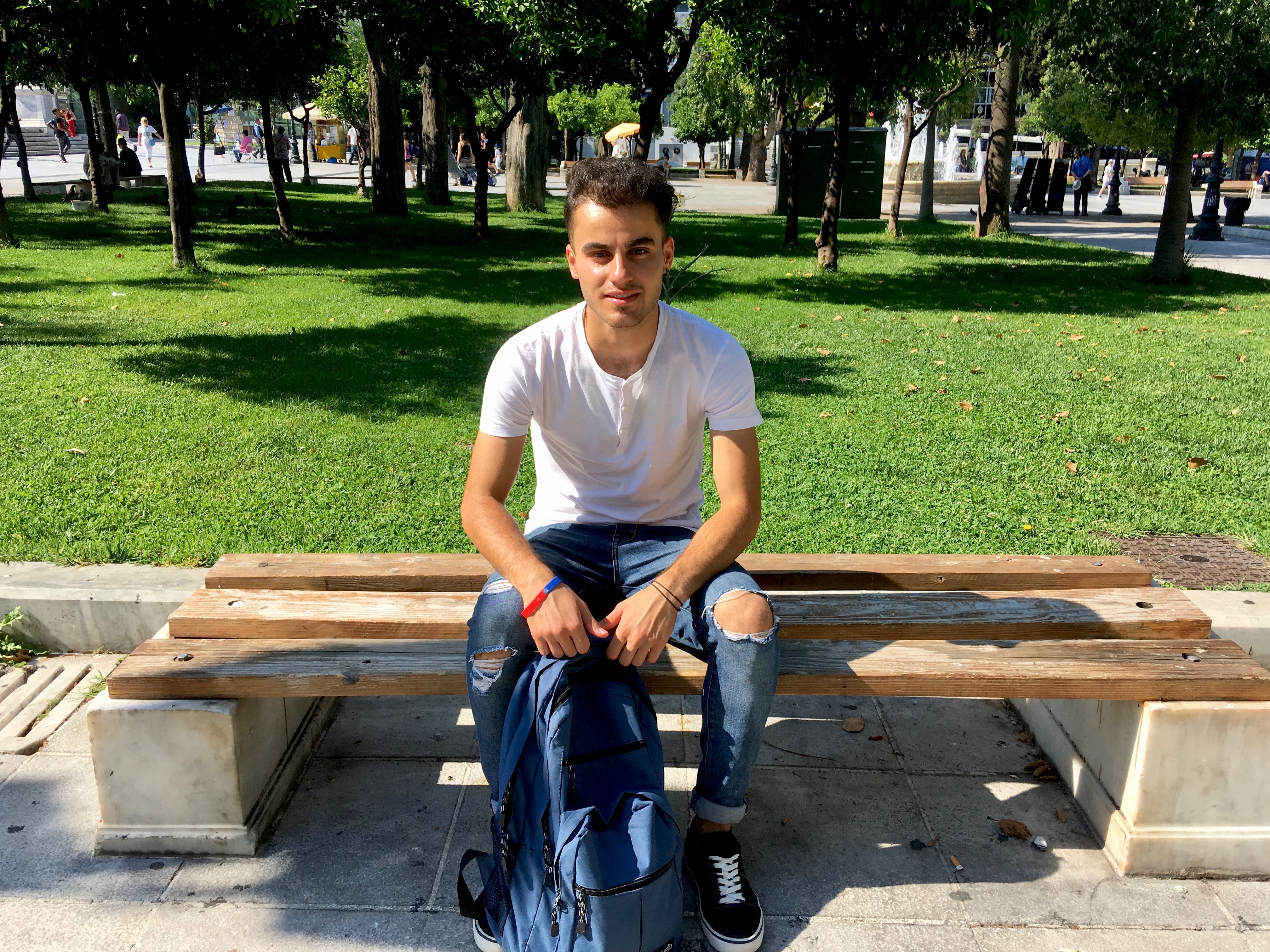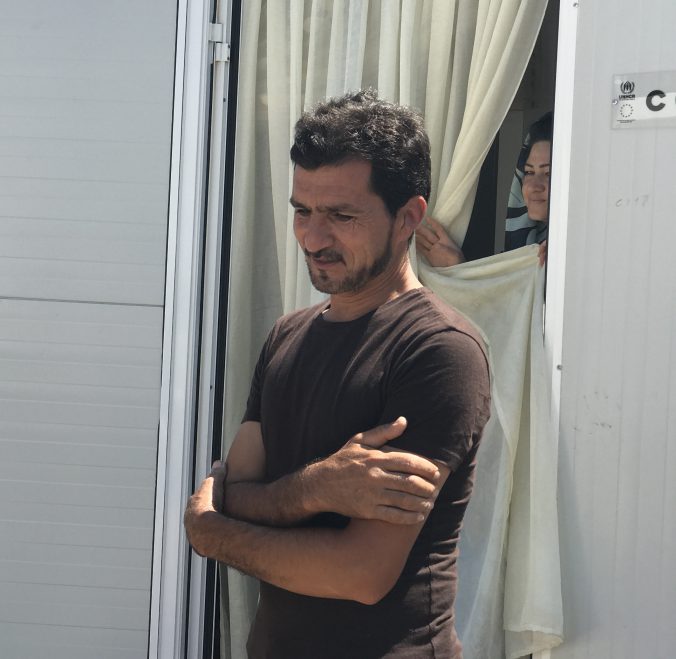By Andie Ayala
ATHENS, Greece –– Mohammed Farid Eskandari watered his flower garden while his wife Rooya Golami peeked through the front door. Out front were a pink bicycle and bright red slippers belonging to one of their four daughters.
But this was not the family’s house. It was a prefab metal container to which Greek authorities temporarily assigned the Afghan family when they arrived at the Schisto refugee camp 18 months earlier.
Schisto opened near Athens in February 2016, after the European Union demanded that the Greek government establish more relocation centers. Because most of the refugees at Schisto are from Afghanistan, it is difficult for them to win certification as asylum seekers, according to Kostas Asinakopolou, one of the federal employees who helps run the camp.
That wrinkle means that many of the migrants who arrived at the so-called relocation camp have remained, instead of quickly heading to northern Europe, as envisioned.
To reach Europe, Eskandari, his wife and their daughters traveled from Kabul across mountains and the Aegean Sea. They have applied for asylum and are still waiting to hear their status. If rejected, they will be given 30 days to leave the country or risk being arrested and detained, Asinakopolou explained.

Isobox shipping container houses. Photo by Alice Maiden
In the camp the family lives in repurposed trailers called Isoboxes. They are solar powered, air conditioned, and connected to a plumbing system. Eskandari said he planted his garden after his family had been in the refugee camp for a year. Several neighbors also have gardens and tend to grow sunflowers, which remind them of home.

Flowers outside of the house. Photo by Alice Maiden.
Eskandari’s Isobox has a rug by the entrance, a kitchen with stove, and stuffed animals decorating the hallway. Their DVD collection boasts titles such as “The Best of Fardeen Khan” and “The Holy Quran.”
The family still doesn’t know how long they will be here or when they may leave. Many of their neighbors face the same fate, stuck in the camps scattered around Athens since the EU-Turkey deal of March 2016 mandated that new arrivals from Turkey be detained and, eventually, returned to Turkey.
Another refugee, 19-year-old Rayan Adan Saled from Mosul, Iraq, begins each morning a few miles away on the south side of Athens. He cooks his breakfast in a city apartment before taking the metro to the Skaramagas refugee camp, located adjacent to a former ship repair dock near the Port of Piraeus.
Saled arrived at the Idomeni refugee camp in northern Greece in February 2016. Macedonia was only allowing a few hundred refugees to cross the border each day. Then, shortly after Saled arrived in the region with his two brothers, aunt and grandmother, Macedonia blocked all refugee crossings entirely. So, after traveling so far, his family backtracked to Athens, where they were placed in the Skaramagas refugee camp.

Rayan Adan Saled.
After living in Skaramagas for three months, Saled and his family were offered an apartment by the Municipality of Athens. The city had signed a cooperative agreement for the temporary accommodation of 3,000 refugees with the United Nations High Commissioner for Refugees. According to Saled, his family was eligible for an apartment because his grandmother was sick and required hospital care every other day.
As of June 23, 2017, Saled said, his family had lived in the “temporary housing” apartment for exactly a year. The apartment is located in Kati Patissia, Athens, near a metro station. It has a kitchen, a porch, a bathroom and basic furniture. Despite his living conditions and the 50 minute commute through public transportation, Saled said that he returns to the refugee camp everyday, staying from around 11 a.m. to 6 p.m. While in the refugee camp, Saled helps with the Play for Peace program operated by ‘A Drop in the Ocean,’ a Norwegian Non-Governmental Organization. In the afternoon he takes English classes. He said he had several friends he has become close to in the camp, who he frequently messages even when he is in back in Athens.

Furniture in the Saled apartment. Photo taken by Rayan Saled.
Initially, Saled wanted to go to Germany. However, he said, now he wants to go to Spain or Ireland. He knows that ultimately his preferences don’t really matter that much though, since applicants can’t choose which country they end up in. He’s been away from his home (first in Kurdistan, then Turkey, then Greece) for three years now, since the Daesh (otherwise known as the Islamic State of Iraq and Syria) captured his hometown.

Rayan Adan Saled in the Athens metro on the way to the Skaramagas refugee camp.
In the scramble to accommodate the refugees that have found their way to Athens, there are several housing variations. In addition to a repurposed army barrack and temporary apartments, refugees have found shelter in the unused international airport, the vast seaport at Piraeus and the abandoned City Plaza Hotel. All are meant to be temporary. Their residents await the outcome of extended bureaucratic operations and government policies, dependent on distant paperwork and closed-door meetings.
Meanwhile, they grow flowers to remind themselves of home.

Leave a Reply